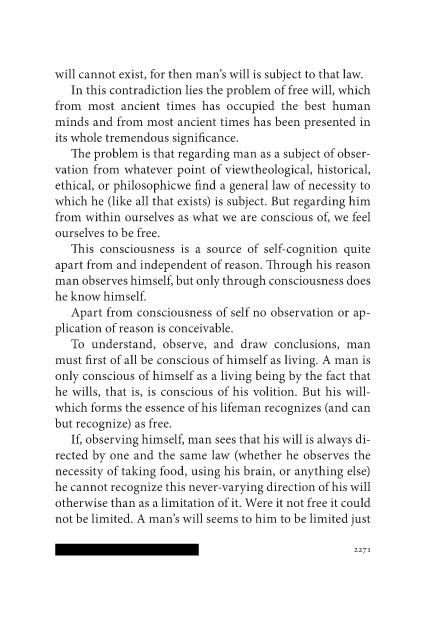Page 2271 - war-and-peace
P. 2271
will cannot exist, for then man’s will is subject to that law.
In this contradiction lies the problem of free will, which
from most ancient times has occupied the best human
minds and from most ancient times has been presented in
its whole tremendous significance.
The problem is that regarding man as a subject of obser-
vation from whatever point of viewtheological, historical,
ethical, or philosophicwe find a general law of necessity to
which he (like all that exists) is subject. But regarding him
from within ourselves as what we are conscious of, we feel
ourselves to be free.
This consciousness is a source of self-cognition quite
apart from and independent of reason. Through his reason
man observes himself, but only through consciousness does
he know himself.
Apart from consciousness of self no observation or ap-
plication of reason is conceivable.
To understand, observe, and draw conclusions, man
must first of all be conscious of himself as living. A man is
only conscious of himself as a living being by the fact that
he wills, that is, is conscious of his volition. But his will-
which forms the essence of his lifeman recognizes (and can
but recognize) as free.
If, observing himself, man sees that his will is always di-
rected by one and the same law (whether he observes the
necessity of taking food, using his brain, or anything else)
he cannot recognize this never-varying direction of his will
otherwise than as a limitation of it. Were it not free it could
not be limited. A man’s will seems to him to be limited just
2271

